What Happens When the DOJ Opens With a Disaster
This wasn’t a cross-examination. It was assisted self-destruction.
They never should have put her on the stand. Nope, nope, nope. This wasn’t a cross-examination. It was assisted self-destruction.
Bryana Bongolan was supposed to confirm the pattern. The balcony. The rage. The man who, according to the Department of Justice, built an empire on intimidation, coercion, and control. Her story wasn’t new. It had been referenced in Cassie Ventura’s civil lawsuit. But this was the first time the jury would hear it straight from her mouth. And it blew up. Bad.
She couldn’t hold it together. She forgot dates. Mixed up quotes. Undermined her own memory in front of twelve jurors who needed certainty. She said Diddy lifted her onto the edge of a seventeenth floor balcony and told her, “I could kill you.” Then she said it wasn’t at the same time. Then she wasn’t sure who saw. Then she wasn’t sure if it happened that way at all. It was supposed to be clarifying. It turned into chaos.
What happened on that balcony may or may not have gone down exactly how she described. But one thing was clear. She wasn’t ready to testify. And the defense knew it.
They didn’t need to prove she was lying. They just had to show that she couldn’t keep the story straight. That she was too close to Cassie. Too emotionally fraught. Too hazy on the details. And they did. Ruthlessly.
But before Bryana ever took the stand, the jury heard from Frank Piazza, a forensic video analyst brought in to authenticate what the world already knows exists. Hotel surveillance of Sean Combs brutally assaulting Cassie Ventura in March 2016. Piazza walked the jury through frame-by-frame breakdowns of the footage, confirming that it hadn’t been altered. That what they were seeing. Diddy in a towel, Cassie on the floor, the kicking, the dragging. It was real.
He also confirmed that Cassie’s phone contained ten sexually explicit videos. Those weren’t played in court. But their mention lingered in the room. The balcony may have been the drama. But the video is the case.
Day nine was supposed to be the prosecution’s momentum builder. Instead, it became a warning. One bad witness can shake the whole structure. And the defense smelled blood.
Let's get into it!
WHO IS BRYANA BONGOLAN?
Honestly? I didn’t know either. When her name popped up in Cassie’s civil suit, I skimmed right past it. I thought she was one of those background friends. The kind that show up in blurry birthday photos or tag along for bottle service and post “my sis” on Instagram stories. I had no idea the Department of Justice was going to build part of their federal case around her. And after what we saw today, I kind of wish they hadn’t.
And let’s just say it. I’ve had a bad feeling about this prosecution since the start. Not because they’re disorganized. Because they’re too controlled. Too careful. Like they’re not trying to win. Like they’re trying to look like they tried. It all feels too familiar. It feels like Epstein. It feels like Harvey. It feels like the same system pretending to eat itself while quietly holding hands under the table. These people know each other. They work in the same buildings. They share donors. They go to the same galas. Do I think every prosecutor is corrupt? No. But I do think power protects itself. And today, Bryana was offered up as a casualty of that protection.

But here’s the thing. Bryana Bongolan was a party girl. She was Cassie’s friend. Or close friend according to her. A creative collaborator. Someone named in the lawsuit. Someone who says she was lifted onto the edge of a seventeenth floor balcony and told her, “You know what the FUCK you did!” Her story could have mattered. But the delivery did not land.
According to her testimony, it happened early one morning in September 2016. Bryana had spent the night on Cassie’s couch with her girlfriend. Combs started banging on the door. Bryana told her girlfriend to hide in the bathroom, then stepped out onto the balcony to play it cool. That’s when he came outside.
“He lifted me up and then put me on top of the rail,” she told the jury.
At the time, she was five foot one, between 100 and 115 pounds. Diddy was significantly larger. She said she was trying not to fall. Trying to answer him. Trying to stay alive.
He screamed, “You know what the fuck you did,” over and over.
He held her there for 10 to 15 seconds, then threw her onto the balcony furniture. She ended up bruised, battered, and scared to death. Photos shown in court displayed large bruises and a neck brace. She said she didn’t go to the police because she was terrified.
“I have nightmares and I have a lot of paranoia and I used to scream a lot in my sleep, but it’s dissipated a little bit,” she testified.
This wasn’t just a dramatic moment. It was supposed to be the connective tissue. Another proof point in the pattern of violence. But under pressure, her memory wobbled. Details blurred. Timelines collapsed.
It wasn’t that she was lying. Let’s be clear. She wasn’t up there smirking or deflecting or spinning wild stories like a bad episode of Law and Order. She just couldn’t ‘remember’ anything. Or she remembered too much. Or she remembered it one way last year and another way today. And when you’re up against a defense team that treats every inconsistency like a confession, that’s a problem. A BIG ONE.
Because the moment after he yanked her off that balcony wasn’t the end. It was just the beginning.
According to Bryana, Diddy tossed her onto the patio furniture like she wasn’t even human. Then he stormed back inside and turned on Cassie. He looked her dead in the face and said, “You let her sleep here?” Like Cassie had committed high treason by letting her friend crash on the couch.
And Cassie? She didn’t scream. She didn’t fight back. She said something quiet. “I’m sorry. I didn’t know what to do.”
And Bryana, still shaken, said it back to her. “You didn’t help me.” Not to accuse. Just to name what happened.
Then came the question that should have stopped the room cold. Cassie looked at him and said, “Did you just hang her off the balcony?”
And he didn’t deny it. Because why would he? There were no consequences. No cops. No ambulance. No headlines. Just another round of trauma served with a side of silence.
A few days later, they talked. Cleared the air. “We decided to be cool,” Bryana testified. Like this was a reality show beef and not an attempted murder.
And that’s what made her testimony so hard to sit through. Not just the horror. The aftermath. The way it got folded into the routine. The way everyone moved on.
She looked like someone who had seen things. But not someone ready to relive them on the record.
THE DEVIL AT THE BEACH
You can’t make this up.
According to Bryana, this happened during a photoshoot in Malibu. Sun shining. Ocean breeze. A beach. And then Diddy. Out of nowhere. Walking up to her like it’s just another shoot day. And then he leans in and says,
“I’m the devil, and I could kill you.”
That’s it. That’s the quote. No context. No setup. Just straight Satan.
She said it calmly on the stand though. Or so they say... I’m the devil and I could kill you. On the beach. In daylight. Like it was normal.
And I know we’ve heard a lot in this trial. But this one hit different. Because what are you supposed to do when someone says that to you?For real though? Laugh. Run. Pretend it’s performance art? There’s no handbook for how to survive a billionaire whispering death threats between camera setups.
She said she froze. Didn’t say anything. Didn’t report it. Didn’t tell anyone at the time. Which sounds wild until you remember who we’re talking about. This is a man people were scared to even look at the wrong way. She probably didn’t even breathe too loud after that.
And this wasn’t a one-off moment. Everyone who’s ever been close to Diddy says the same thing. That he could flip. That he had two speeds. Charm and destruction. That his whole face would change when he got into one of his moods. Like a mask sliding off. That black look in his eyes. The kind of stare that makes your stomach drop.
Cassie said it. Dawn Richard said it. Even Kid Cudi described being creeped out by him. There are too many stories for this to be some isolated misunderstanding. People weren’t just scared of what he’d say. They were scared of what he’d become.
And let’s be real. You go on a bender mixing ketamine, GHB, coke, and liquor with no sleep for days, and you’re not just partying. You’re summoning something. You’re chemically erasing your conscience and daring whatever’s left of your soul to stay put.
That version of him. The one who thinks he’s untouchable. Who thinks he’s God. Who tells women he’s the devil and might actually believe it. That’s the one she saw on the beach.
And I know the court moved on from it quick. Like it was just one of those weird anecdotes. But I’m not moving on from that. Because if someone tells you who they are, and everyone around them shrugs and says, “That’s just Diddy,” then what they’re really telling you is they’ve been conditioned to live with demons.
THE KNIFE THAT MAYBE FLEW
This is where Bryana lost me. And maybe the jury too. Somewhere in the swirl of stories, the balcony, the beach, the bruises, came another bombshell. A knife. She said Diddy threw one. At her. Or near her. Or in the general direction of drama. She wasn’t sure. But she said it happened.
She said it clearly at first. That he grabbed a knife, threw it in her direction, and that it came close. Close enough that Cassie, according to Bryana, picked it up and threw it back. Which, if true, is maybe the boldest sentence anyone’s ever said in a courtroom. Like what kind of Wednesday is that. Knife dodge. Knife return. Everyone back to the living room like it’s nothing. Like once he left the room, the spell was broken and everyone could finally breathe again. But no one called the police. No one screamed. No one packed a bag. Because they all knew the truth. They couldn’t do anything. Not really. Not when the man throwing knives is also the man funding the party. You just survive it. You sit still. You hope you’re not next.
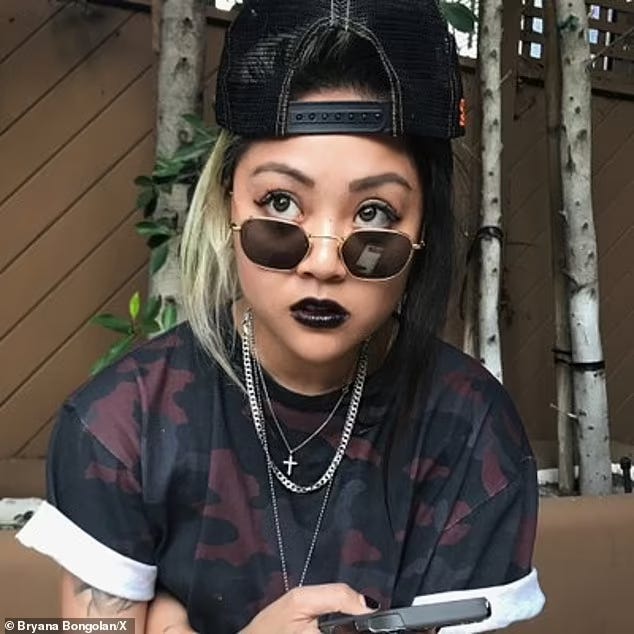
But then the questions came. Where were you?What kind of knife was it? Did it land? Did it hit anything? Was it meant for you? Was it meant for Cassie? Was it a steak knife? A chef’s knife? A hallucination from drugs? Did it happen in the heat of a fightm Or was this just another Thursday in Combs’ America?
And that’s when the whole thing started to melt like a snowcone in PHX. She said she didn’t remember. She said she might have guessed where the knife came from. She said, under oath, that they might have been in knife fights. Knife fights. Like plural. Like this wasn’t a one-off incident. It was just a casual part of the vibe. The ambiance. Cutlery with a splash of chaos.
I sat there wondering how we got from attempted murder to Mortal Kombat. And I swear, at one point it felt like she was describing an interpretive dancer with cutlery. Not a stabbing. A vibe. A sharp little performance piece with a bruising aftertaste.
And it’s not funny. Not really. If it’s true, it’s terrifying. If it’s not, it’s perjury. Either way, the defense didn’t have to work that hard. They just let her talk. Let her unravel. Let her memory fold in on itself until nothing made sense.
Because at one point, she said she didn’t remember how she felt. That’s when I knew it was over. If someone throws a knife at you, your body logs that information. Your nerves hold it. Your breath stutters when you recall it. But Bryana, apparently, didn’t store it anywhere.
So now we’re left with this phantom knife. Not denied. Not confirmed. Not ruled out. Just hovering in the air with the rest of this case. Floating between truth and fiction. Waiting for someone to catch it clean.
THE DRUGS AND THE COMPLIANCE MACHINE
When Bryana started talking about the drugs, it stopped being a story about violence and started being a story about control. This wasn’t partying. This wasn’t wild-child behavior. This was infrastructure. This was how the machine ran.
She listed them like inventory. Coke. GHB. Ketamine. Molly. Weed. Ecstasy. Pick your flavor. Stack them. Mix them. Repeat until nothing feels real. She said she hallucinated. Forgot things. Lost entire chunks of time. Woke up in places she didn’t remember falling asleep. And she said it like she was describing a long layover. Just another cost of doing business in the Bad Boy universe.
And she wasn’t just a user. She was part of the supply chain. Bryana testified she bought the drugs. Cassie paid. Diddy directed. You want a blueprint for manufactured consent. There it is. She’s the errand girl. Cassie’s the sponsor. Diddy’s the ringmaster. What looks like a friend group is actually a human resources department for freak-offs.
The story that really stuck was New Year’s Eve 2018 in Miami. Eight hours of ketamine. Eight. Hours. That’s not a party. That’s spiritual anesthesia. That’s how you lose your sense of self and laugh about it. She said after it wore off she looked at herself and thought, “I can’t do this anymore.” That wasn’t a high. That was an exorcism.
At one point she and Cassie tried to get clean. They cooked together. Like actual food. As if French toast could undo brain damage. It didn’t last. Because sobriety in Diddy’s world is an act of defiance. It means you’re alert. And if you’re alert, you’re dangerous. Everyone else was sedated for a reason.
Because the drugs weren’t recreational. They were tactical. Freak-offs don’t work if people are thinking clearly. You need disassociation. You need hallucinations. You need women so chemically detached they call their own exploitation intimacy.

Bryana said the G was the worst. She couldn’t see straight. Couldn’t tell what was real. Time didn’t make sense. And that was the point. When you’re that high, you don’t run. You don’t fight. You perform. And Diddy didn’t have to threaten anyone. The pills did it for him.
These weren’t parties. They were rituals. Staged. Casted. Produced. Male sex workers. Cameras. Roles. Scripts. You didn’t say no. You said yes. Or you nodded. Or you floated above your body and hoped it ended fast. Then you blacked out. Then you woke up. Then you never talked about it again.
It wasn’t a vibe. It was a protocol.
Bryana didn’t break because she saw too much. She broke because the drugs stopped working. And when they wore off, even for a second, she saw the entire structure. She saw who she was. A component. A tool. A living prop in a billionaire’s horror fantasy.
And by the time she realized it, it was already too late. Because this wasn’t about pleasure. It was about possession. Diddy didn’t have to take anything from you.
You handed it over.
FROM BAD TO “MA’AM THAT’S NOT WHAT YOU SAID”
It started slow. Calm. Almost polite. The kind of polite that sounds sweet but means danger is coming. Like a toddler smiling at you right after you hear a crash from the other room.
Westmoreland stood up calm and collected. No theatrics. Just a binder full of receipts and the energy of a man about to perform a public autopsy. He opened to the first page and started asking questions. Basic stuff. Dates. Locations. Who was there. What happened. It should have been the easiest part of the day. But Bryana couldn’t keep up.
She tripped on her own timeline. Paused when asked about her own quotes. Squinted like she was trying to remember a dream she’d only half made up. It was painful. Not just because she looked lost. But because she looked like she knew she was losing.
Then came the documents.
Westmoreland pulled her government interview transcript. Asked her to confirm a line. She couldn’t. So he read it aloud. Slowly. Clearly. Word for word. She blinked. Shifted. Said she didn’t remember saying that. But that she wasn’t denying it either.
Which might be the worst sentence you can say under oath. Especially when you're testifying under immunity. Imagine being granted legal protection from your own crimes and still managing to fumble the bag.
The defense didn’t just challenge Bryana’s credibility. They tried to make her and Cassie look like co-conspirators. Like two women sharing their experiences wasn’t about making sense of their trauma. It was about building a case. Westmoreland asked if they had discussed the balcony timeline. Bryana said yes. That they tried to figure it out together. And the defense ran with that. She pointed out that Bryana’s lawsuit came after Cassie’s. Questioned why their stories sounded so aligned. Why the details overlapped. Why they both remembered the same violence. As if that’s suspicious. As if survivors aren’t supposed to remember the same man doing the same thing. The implication was obvious. This wasn’t truth. This was coordination. A performance. Two women suing a billionaire couldn’t possibly be telling the truth. They had to be plotting. That’s the strategy. Make solidarity look staged. Make memory look rehearsed. And watch the jury squint.
I get his point. He’s trying to win a case here. But is the jury going to buy that?
From that moment on for Bryana though, the whole thing fell apart. And not because he tricked her. He didn’t have to. He just held up her past statements and let them fight it out like Real Housewives reunion footage.
He asked her, “Didn’t you tell the government you took Molly, G, and cocaine?” She answered, “That’s a lot of drugs.” He followed up, “Didn’t you take them all?” She said, “No. All on that night.” Not the clarification she thought it was.
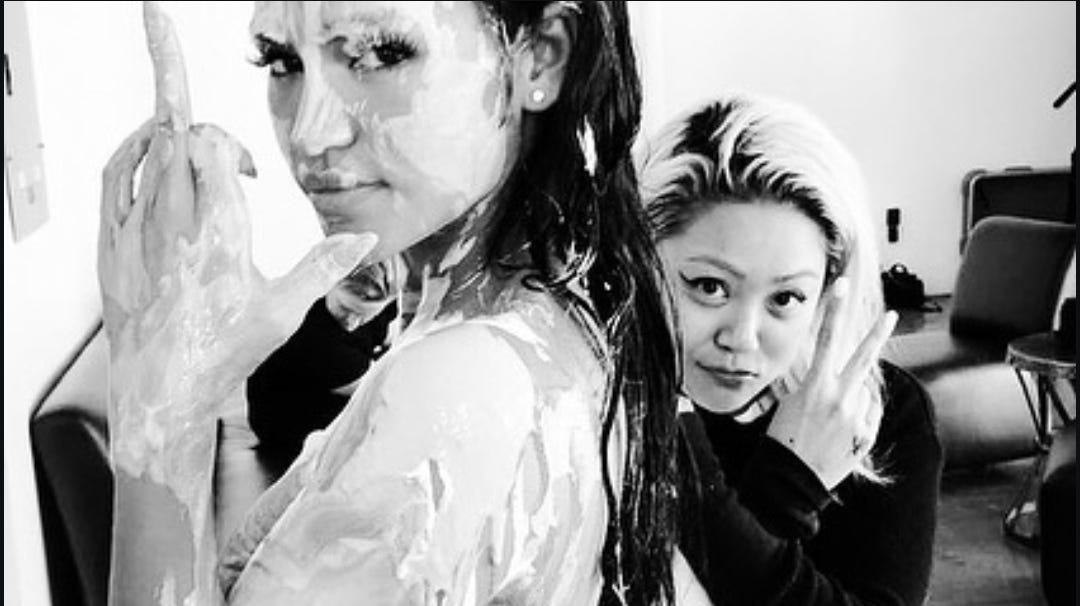
He asked if she remembered what drugs she was on during the balcony incident. She said she didn’t remember. Which is one way to explain away a federal felony. Just plead ketamine.
He asked about the knife. She said she was “suggesting” where it came from. As if knives just manifest mid-argument. She also floated the idea that they “might have been in knife fights,” which is the kind of line you say when you’re either lying or doing improv.
He asked if Diddy groped her. She said, “I showed them where his hands were.” He followed up, “You said he groped your breasts or your lawyers said it?” She said, “My lawyers said that.” Girl.
He pointed out that in one version, she said Cassie didn’t see her on the balcony. Then in another, Cassie did. Then she said she didn’t remember. Then she said maybe they talked about it after. Then she admitted they coordinated timelines. As if colluding with the plaintiff was just something friends do now.
And yes, Westmoreland laughed. In court. When she said something so sideways he literally couldn’t help himself. The judge asked how much longer he’d need. Westmoreland said, “How much can I get?” with a smirk that probably sent paralegals into cardiac arrest.
And let's be honest. This wasn’t cross-examination. This was assisted implosion. The defense didn’t just poke holes. They brought popcorn and watched her float away like a helium balloon full of contradictions.
And yeah. Let’s ask the question we’re all thinking. Why was she even up there. Who greenlit this. Who looked at this woman’s transcripts, contradictions, memory gaps, and full Costco sample platter of drug admissions and said, “Yeah. Let’s run her.”
By the time it was over, the balcony was fiction. The beach was a hallucination. The knife was a metaphor. And Bryana Bongolan wasn’t a witness anymore.
She was a warning label.
DAMAGE CONTROL IN A COURTROOM DUMPSTER FIRE
There’s no official transcript for embarrassment, but if there were, the Department of Justice would’ve been redacting it before the ink dried.
After Bryana’s testimony collapsed like a wet paper straw, you could feel the energy shift. Not just in the room. In the strategy. No objections. No redirections. No hero moment. Just a silent agreement to move on and pretend that never happened.
The prosecution didn’t defend her. They didn’t clean up her contradictions. They didn’t even try to spin the damage. They just quietly thanked her for her time and sat down like someone who just remembered they left the stove on.
Because what could they say. She had immunity. She admitted to selling drugs. She admitted to not remembering if Diddy groped her. She contradicted her own lawsuit. She told the court Cassie might have seen her hanging off a balcony. Or might not have. She said maybe she hallucinated a knife. She admitted they coordinated timelines. She was the prosecution’s witness. And she handed the defense reasonable doubt on a silver platter.
No redirect could’ve saved that.
So the DOJ did the only thing they could. They moved on. Fast. They pivoted to their next witness like a magician reaching for the second deck after a card trick fails mid-snap.
And the jury? Still sitting there, trying to untangle what they just heard. Trying to make sense of a story that started with attempted murder and ended with knife fights and forgotten groping.
Social media was brutal. Influencers and independent journalists were already cutting clips and weighing in. Some said the DOJ looked lost. Others said it felt like they weren’t trying. Everyone agreed on one thing. That was not the witness to send in first. You don’t open with fog. You don’t follow Cassie Ventura’s testimony with a shrug. You don’t tee up your whole federal sex trafficking case with a woman who needed help remembering what she remembered.
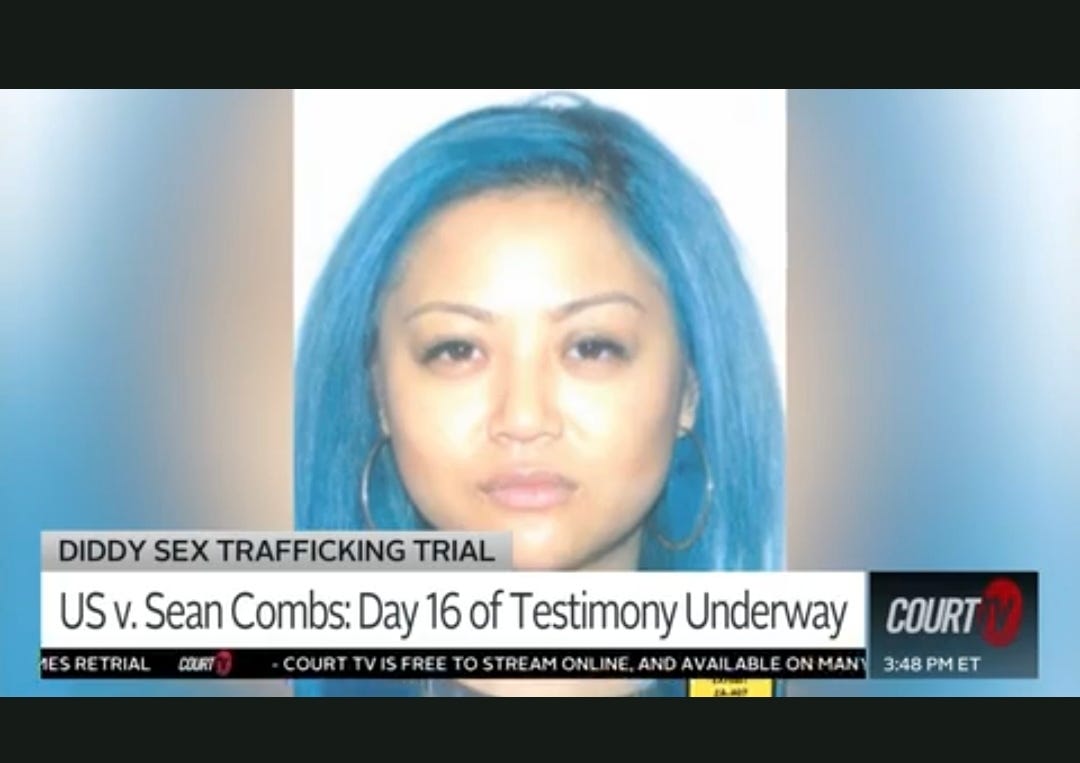
It wasn’t just a bad day. It was a mess with a government seal on it. And if we’re being honest, maybe that’s the point. Maybe it’s not just incompetence. It’s orchestration. Because how do you botch something this badly, this early, unless you were never trying to win in the first place? This is what it looks like when a prosecution needs to look like it tried, while making sure nothing actually sticks. We’ve seen it before. Epstein. Weinstein. Lather. Rinse. Repeat. Prosecute the headlines. Protect the power. Call it justice while the real game plays out somewhere else entirely.
Im not dumb. Ive said it since the beginning.
FRAME. BY. FRAME.
Frank Piazza, a certified forensic video expert with over 25 years of experience and the courtroom energy of a man who knows he’s the only adult in the room, testified after Bryana Bongolan. He was called by the prosecution to do one thing. Confirm the videos.
He authenticated the 2016 InterContinental Hotel surveillance footage. He confirmed the footage had not been altered. No cuts. No gaps. No edits. It was real. And that mattered, because people online had already started saying it wasn’t. That it was fake. Staged. Deepfaked. You know, the usual internet gymnastics people perform when someone rich and famous gets caught doing something unforgivable. I’ve seen TikToks with more confidence than evidence trying to say the hotel video was AI. Piazza shut all that down. Frame rates. Software logs. The metadata equivalent of 'have several seats.' You don’t need a conspiracy theory when a hallway camera caught it in one take. No stunt doubles. Just Diddy, a towel, and the truth.
He explained that the video was originally recorded at 22 frames per second, but the version obtained was a cell phone recording made at 30 frames per second using an iPhone 6. This caused the video to appear sped up. "We counted the frames and used software to correct the timing," Piazza testified.
He addressed concerns about pixelation and motion blur, stating, "The file was corrupted, but that doesn't mean it was tampered with." He noted that he created a compilation video for the government with black screens inserted between sequences. “I deemed this footage accurate.”
The defense asked about a ghostlike figure visible in the hotel’s original footage but not in the iPhone recording. Piazza replied, “The cell phone video does not show it because the quality of the footage did not allow for that kind of detail.”

Piazza also testified that he reviewed and enhanced ten sexually explicit videos recovered from Cassie Ventura’s devices. These were entered into evidence under seal. He confirmed the metadata matched. He was also asked to enhance the audio on the clips. The name associated with the hotel bookings tied to these videos? Frank Black. A known alias allegedly used by Combs.
Piazza didn’t speculate. He didn’t editorialize. He didn’t need to. The footage spoke for itself. You saw Cassie hit the ground. You saw Diddy raise the vase. You saw what happened after. And Piazza was just there to confirm it all. Pixel by pixel. Frame by frame. This wasn’t about who said what or who remembered wrong. This was about what the camera saw. And what it saw was a woman being attacked. What it captured was power used like a weapon. And once you’ve seen that, you can’t unsee it. Not even in court.
Piazza’s testimony wasn’t about emotion. It wasn’t about memories. It was about proof. No metaphors. No speculation. Just a screen, a timestamp, and a man who could confirm it all. You didn’t have to believe Cassie. You didn’t have to understand Bryana. You just had to look. And once the jury did, it wasn’t about who said what anymore. It was about what they saw. That’s what made Frank Piazza the quiet center of the entire day. He didn’t speak loudly, but the footage did.
JANE IS COMING
The prosecution ended with Frank Piazza, and the courtroom finally exhaled. After the disaster that was Bryana’s testimony, all they needed was one man with receipts and a working memory to remind the jury what coherence looks like. Everyone knew what was coming next. Jane. The pseudonym. The mystery. The witness the DOJ has been building toward for weeks. She was originally expected to take the stand on June 5, but that changed earlier in the day when it became clear that Bryana Bongolan’s testimony was running long. Court watchers knew Jane wouldn’t be testifying today by midday, but that didn’t stop the speculation. Some still wondered if the DOJ was stalling. Others asked whether Jane’s appearance was being reshaped behind the scenes. The same court that let Bryana spiral for hours without redirect seemed unusually quiet about how they’d handle the witness that actually matters. And that silence only made people more curious.
Because this isn’t just another witness. Jane is one of the core accusers in the federal sex trafficking indictment. She’s expected to testify about forced freak-offs. About being trafficked. About coercion. About the role others played. She’s allegedly one of the ones who saw the full machine from the inside.
Final thoughts…RIP Jerry.
This trial was never going to be fair. But today proved it might not even be serious. The witness fell apart. The system blinked. The tape did its job. And now it’s Jane’s turn to walk into a courtroom that smells like credibility smoke and convince a jury that what they just witnessed isn’t the story. It’s the distraction.
And I’m not even sure the DOJ’s ready. Maybe it’s because they’ve been busy raiding the wrong mansion on Star Island. They stormed Diddy’s property looking for answers and left with a playlist. Maybe they heard “I’m the King of New York and Miami” and took it literally. Congrats. You found a gym bag full of lyrics and lube. What you didn’t find? A strategy.
So here we are. No more buffer witnesses. No more buy time and pray. Jane has to reset the case like Bryana never happened. She has to be the grown-up. The one who isn’t floating through trauma in real time while Westmoreland reads her receipts out loud.

Because if she doesn’t land. I mean really land. Then it’s not just another bad witness. It’s confirmation. That this case was never meant to be clean. That the DOJ was only ever here to say they tried. That the show was always going to run short. And the ending was always going to be familiar.
You’ve seen it before. Epstein. Weinstein. Rinse. Repeat. Loud openings. Quiet exits. The government performs a prosecution. The powerful walk. And the public moves on.
Unless Jane changes that. Tomorrow isn’t just another witness. It’s the last chance this case has to mean something. And if it fails, we won’t be watching justice collapse. We’ll be watching exactly how it survives.
Thank you so much for reading and supporting my Substack. If you're new here, make sure you hit subscribe and keep it locked — this rabbit hole only goes deeper. 🕳️🐇
Follow me on Instagram @AliceRedPill12 (All one word.)For daily updates, courtroom chaos, and the occasional unhinged meme.
Also, don’t forget to check out my podcast, Alice Uncoded. New episodes drop weekly, wherever you get your audio fix.
Stay sharp. Stay curious. Stay redpilled. 🩸


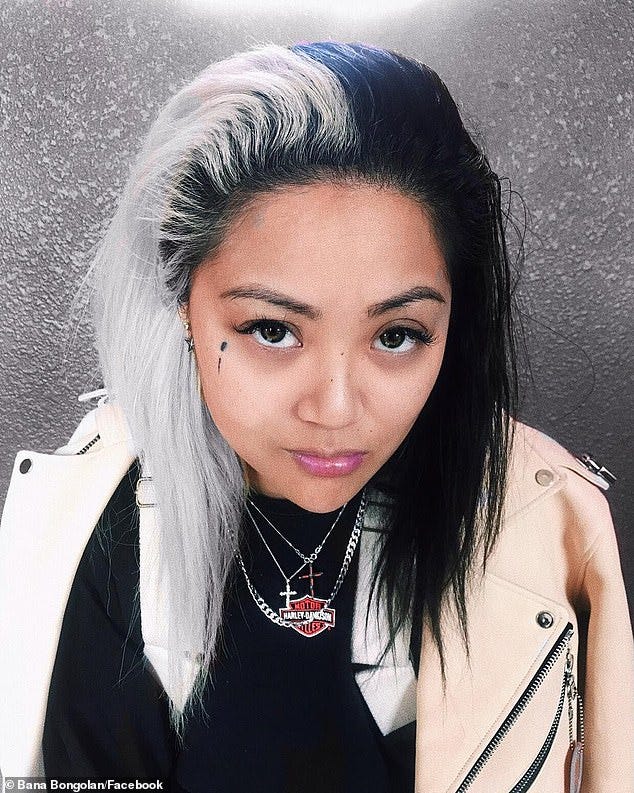
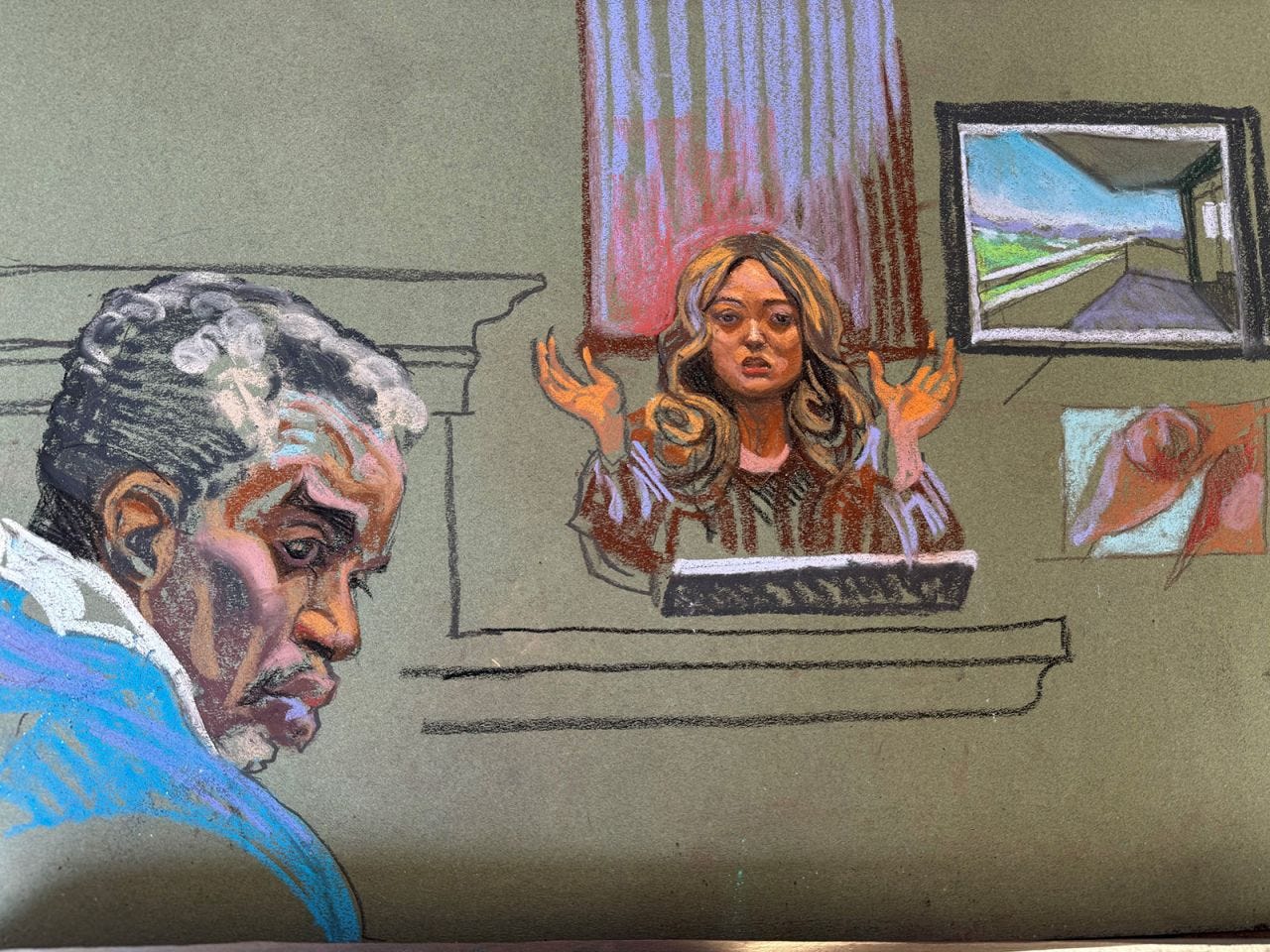
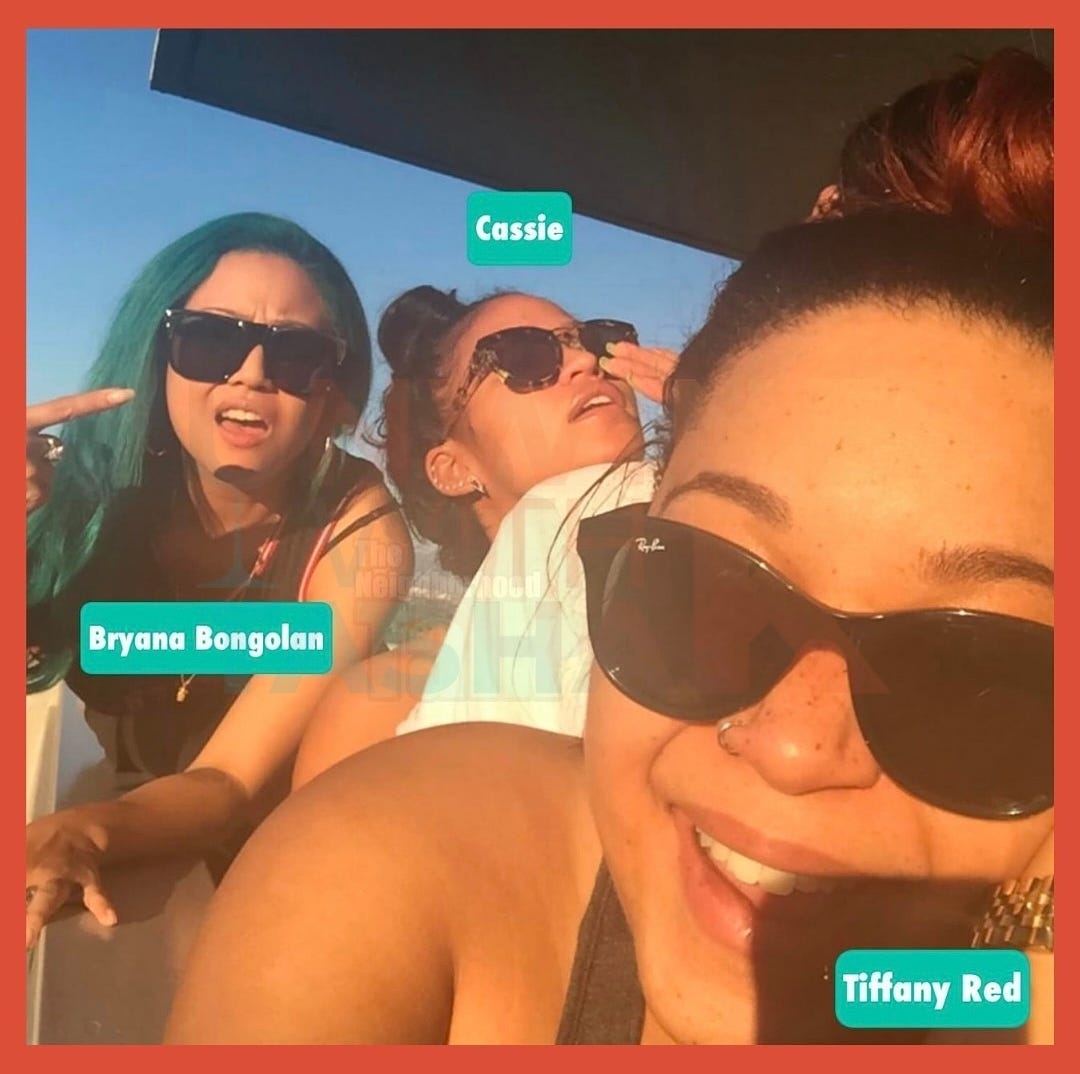


Great read! Well done!